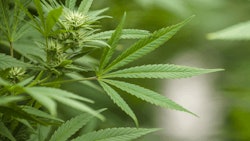UNITED KINGDOM, April 20, 2021 - PRESS RELEASE - A groundbreaking paper, released April 20, has revealed the outdated laws and regulations currently hindering the U.K.’s cannabidiol (CBD) and medicinal cannabis industries. The paper calls on the government to review its restrictive approach to the U.K. cannabis industry, which could be worth billions of pounds and create tens of thousands of jobs.
Not only would the emergence of a domestic cannabis sector help stimulate the U.K. economy post-pandemic, but it would also transform access for the estimated 1.4 million individuals currently sourcing cannabis illegally for medical reasons, who are in desperate need of affordable cannabis medicine.
In November 2018, the government announced medical cannabis could be prescribed for patients by specialist doctors, but so far just three National Health Service (NHS) prescriptions and 6,000 private prescriptions have been issued. Despite being one of the largest exporters of medical cannabis in the world, currently, the U.K. imports 100% of its cannabis medicine and the majority of its CBD products, due to the contradictory legislation on medical cannabis, and the convoluted licensing and regulatory processes required for businesses entering the space. Sadly, patients themselves have largely footed the bill for these issues, with the majority of prescriptions paid for privately by patients and their families.
Written by Maple Tree Consultants and Mackrell.Solicitors, the discussion paper is supported by 16 industry heavyweights including Prohibition Partners and the Primary Care Cannabis Network. Its findings refer to distinct areas of the cannabis industry, including CBD, hemp and medical cannabis.
Recommendations to Government:
- Reform the high-THC cultivation/controlled drug license system.
- Allow the cultivation of the hemp flower to extract CBD under an Industrial Hemp license.
- Increase the THC limit from 0.2% to 1% to align with international competition.
- Ensure the application of the Novel Foods Regulation to cannabis-related wellbeing supplements does not impinge upon smaller market participants.
- Encourage wider, appropriate patient access by allowing general practitioners to prescribe medical cannabis.
- Introduce an “Office for Medicinal Cannabis," as implemented by other jurisdictions such as the Netherlands.
Findings on Medicinal Cannabis:
- Production of the U.K.’s medicinal cannabis products is confined to one main grower, British Sugar, and one main producer, GW Pharmaceuticals. In 2018, the U.K. was supplying 44.9% of all medical cannabis, yet this relates almost solely to two products, Sativex and Epidiolex, which are not used by the U.K.’s domestic market.
- Most of the U.K.’s medicinal cannabis patients require full-spectrum products that cannot be produced in the U.K. due to the difficulty of obtaining a cultivators high-THC growing license from the Home Office.
- As of October 2019, there were just 19 extant licenses to cultivate high-THC cannabis in England, Wales and Scotland, and many of these are owned by GW Pharmaceuticals. This is a poor number, considering applications to the Home Office to grow cannabis for medical purposes have been open for several years.
- The medical cannabis industry could be worth in excess of £2 billion, if even half of the 1.4 million individuals currently sourcing cannabis illegally for medical reasons were to be granted a prescription.
- According to financial mapping of other regions that have legalized medical cannabis, the industry could generate over £360 million per annum in tax revenue.
Findings on Cannabidiol (CBD):
- The U.K.’s CBD market was worth £300 million in 2019, but the great majority of CBD products come from foreign sources. This is because under U.K. law, the stalks of the hemp plant can be used for textiles and the seeds for food products, but its flowers and leaves—where the majority of the CBD resides—must be destroyed.
- There is growing outcry from hemp farmers who argue that harvesting the CBD would take their yields from £400 per acre to an estimated £10,000.
- The U.K.’s 900 hectares of hemp farmland could be worth over £22 million per annum in revenue if the flowers were harvested for CBD.
“Almost all of the medicinal cannabis products prescribed in the U.K. have, to date, been imported," said Mike Barnes, professor and co-founder of Maple Tree Consultancy. "The U.K. is a world leader with a global reputation in pharmaceuticals, so there is a strong argument that if we were able to both develop and export more cannabis-based medicines, we could continue to be a global heavyweight and increase our market share even further. The current situation has resulted in desperate patients, who even after being lucky enough to receive a medicinal cannabis prescription, face high costs and long waiting times. This is in turn leading to frustrated businesses, who are desperate to supply these domestic patients."
“The current regulatory landscape for medicinal cannabis is fraught with problems," said Ricardo Geada, partner and head of the cannabis and regulatory team at Mackrell.Solicitors. "The market could be worth billions of pounds and has the potential to revolutionize patient care and turbocharge the U.K. economy post-COVID. We hope the government takes notice of our report’s findings and opens discussion on the necessary detail that lies behind the recommendations we have presented."

























